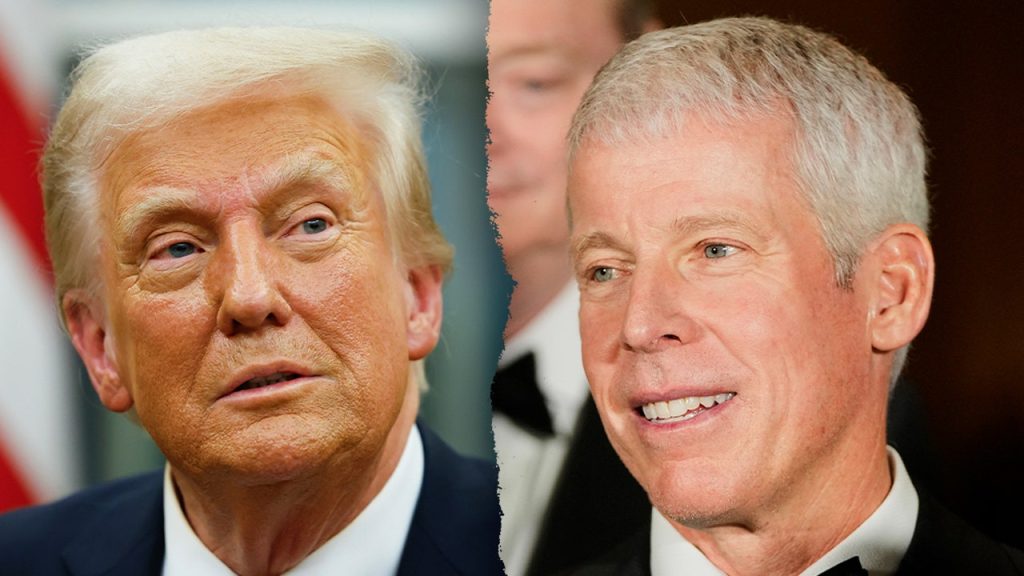Chris Wright’s confirmation as Secretary of Energy marks a significant turning point in the Trump administration’s energy policy, promising a renewed emphasis on fossil fuel production and a departure from the Biden era’s focus on renewable energy. Wright, the former CEO of Liberty Energy Inc., a prominent player in the oil and gas industry, brings with him extensive experience in the energy sector and a perspective aligned with President Trump’s “Drill, baby, drill” mantra. His confirmation, which garnered bipartisan support in the Senate, signals a potential shift in the nation’s energy landscape, with implications for both domestic energy production and the global climate change agenda. Wright’s confirmation hearing provided a glimpse into his priorities, which include maximizing American energy output and reducing reliance on foreign sources.
Wright’s ascension to the helm of the Department of Energy places him at the forefront of President Trump’s ambitious energy agenda. Trump, from the outset of his second term, has signaled his intention to prioritize energy independence and bolster domestic energy production. His declaration of an “energy emergency” on his first day in office, coupled with the reversal of Biden-era policies on natural gas exports and environmental regulations, underscores his commitment to a pro-fossil fuel agenda. Wright, with his industry background and shared vision, is poised to be a key instrument in implementing these policy directives. His leadership will likely shape the trajectory of American energy policy for the next four years, potentially influencing everything from energy prices to environmental regulations.
The bipartisan support for Wright’s confirmation reflects a broader consensus on the importance of energy security and affordability, even as debates persist about the long-term role of fossil fuels. While some senators expressed concerns about Wright’s past statements on climate change and his strong ties to the fossil fuel industry, his confirmation ultimately demonstrates a willingness to prioritize energy independence and economic growth. This bipartisan support could provide Wright with the political capital needed to navigate complex energy policy debates and implement the Trump administration’s agenda effectively. However, it also highlights the continuing tension between energy security and environmental protection, a tension that Wright will be tasked with addressing during his tenure.
Wright’s confirmation hearing provided valuable insights into his approach to energy policy and his priorities as Secretary of Energy. He emphasized the importance of unleashing American energy potential, highlighting the role of fossil fuels in meeting the nation’s energy needs. He also stressed the need to streamline permitting processes for energy projects and reduce regulatory burdens on the industry, reflecting the Trump administration’s broader deregulatory agenda. While acknowledging the importance of renewable energy sources, Wright’s focus remained firmly on maximizing domestic fossil fuel production. This emphasis sets the stage for potential conflicts with environmental groups and proponents of a rapid transition to renewable energy.
The Trump administration’s energy agenda, as articulated by both the President and his newly confirmed Energy Secretary, signals a significant departure from the policies of the previous administration. The focus on maximizing domestic energy production, particularly of fossil fuels, represents a shift away from the Biden administration’s emphasis on renewable energy and climate change mitigation. This shift has the potential to reshape the American energy landscape, with implications for energy prices, jobs in the energy sector, and the nation’s contribution to global greenhouse gas emissions. The lifting of restrictions on natural gas exports and the rollback of environmental regulations are likely to spur increased fossil fuel production, potentially leading to economic benefits in some regions but also raising concerns about environmental impacts.
The confirmation of Chris Wright as Secretary of Energy marks the beginning of a new chapter in American energy policy. With his industry experience and alignment with President Trump’s energy vision, Wright is poised to play a pivotal role in shaping the nation’s energy future. His tenure will likely be marked by increased fossil fuel production, a focus on energy independence, and a streamlining of regulatory processes. The long-term consequences of these policies, particularly their impact on the environment and the global climate, remain to be seen. However, one thing is certain: Wright’s leadership at the Department of Energy will have profound implications for the nation’s energy trajectory for years to come.

